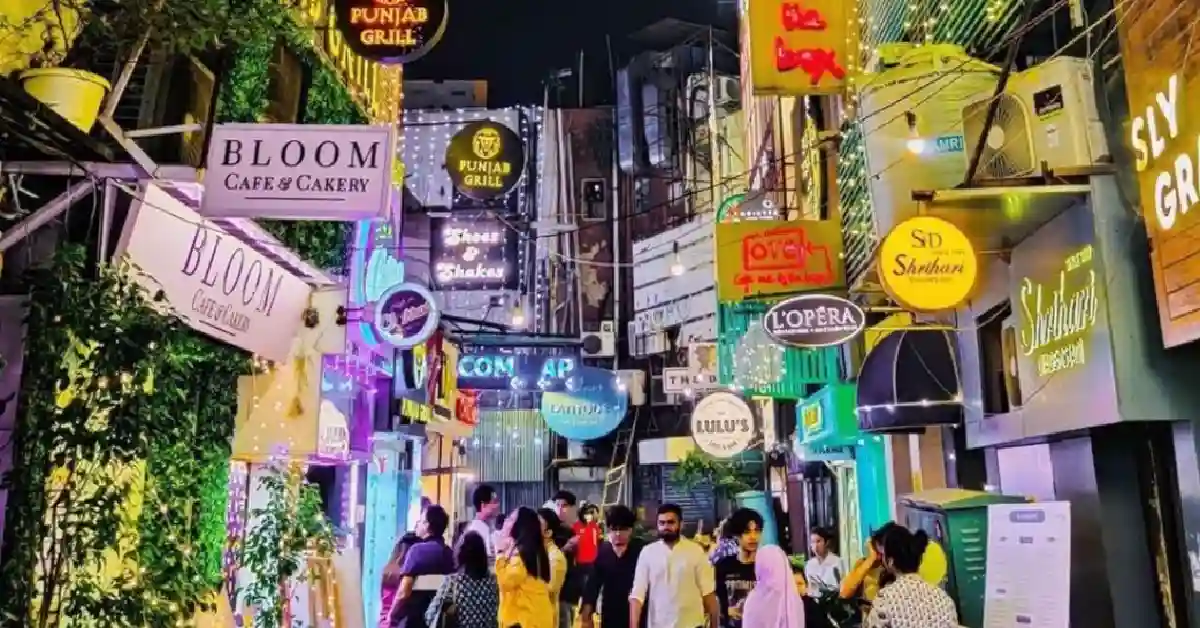Subtotal ₹0.00
Khan Market in New Delhi continues to hold its position as India’s most expensive retail destination, ranking 24th globally with rents at USD 223 per square foot per year, according to Cushman & Wakefield’s 35th edition of Main Streets Across the World. While its global ranking slipped slightly from 23rd to 24th, the market’s enduring appeal underscores the resilience of India’s high streets amid a competitive international landscape.
Globally, London’s New Bond Street has emerged as the world’s priciest retail location, with rents surging 22% to USD 2,231 psf/yr, overtaking Milan’s Via Montenapoleone and New York’s Upper Fifth Avenue.
The report focuses on headline rents in best-in-class urban locations across the world, many of which are linked to the luxury sector, utilising Cushman & Wakefield’s proprietary data. The global index ranks the most expensive main street in each market.
Gautam Saraf, Executive Managing Director, Mumbai & New Business, Cushman & Wakefield said, “India’s high streets are demonstrating exceptional resilience and growing global prominence. Premium destinations like Khan Market, Connaught Place, and Galleria Market are attracting international and domestic brands, driven by rising affluence and evolving consumer preferences. With limited mall supply, these high streets have become strategic hubs for retailers seeking visibility and engagement. Year-to-date, high streets have accounted for over half of retail leasing activity, underscoring their critical role in shaping India’s retail evolution. This transformation reflects a broader trend of premiumisation and experiential retail, positioning India as one of Asia Pacific’s most dynamic markets.”
Notably, India’s retail sector has outperformed both the global and APAC averages, registering a 6% YoY rental growth.
Globally, rents grew on average at 4.2% with 58% of markets experiencing rental growth. The Americas led regional rental growth at 7.9%, driven by currency effects in South America. Europe experienced steady 4% year-on-year (y-o-y) growth, with standout performances in Budapest and London. Meanwhile rents in Asia Pacific slowed to 2.1%, with strong growth in India and Japan offset by economic headwinds in Greater China and Southeast Asia.
Asia Pacific highlights
Rental growth in Asia Pacific slowed from 2.8% in 2024 to 2.1% in 2025, though performance varied widely across markets. India’s Tier 1 cities led the rental growth in APAC region, with Gurgaon’s Galleria Market recording a 25% increase, followed by Connaught Place in New Delhi (14%) and Kemps Corner in Mumbai (10%). This growth was driven by limited supply and strong demand, underlining the enduring appeal of prime retail locations in India’s key urban hubs and broader trend of premiumisation. Across 16 tracked Indian locations, rental growth averaged 6% year-on-year.
At the other end of the spectrum, APAC’s most affordable main street is also in India- Anna Nagar 2nd Avenue in Chennai, where rents remain at USD 25 psf/yr.
Elsewhere in the region, Japan’s Ginza and Omotesando in Tokyo saw strong growth of 10% and 13% respectively, while rents in Hong Kong’s Tsim Sha Tsui declined by 6% to $1,515 psf/yr. Sydney’s Pitt Street Mall recorded modest growth of 4%, reaching $795 psf/yr, marking a return to positive momentum after years of stagnation.
Cushman & Wakefield’s Asia Pacific Head of Retail Sales & Strategy Sona Aggarwal, said, “Asia Pacific retail is demonstrating resilience despite economic challenges. India, Korea and Japan are leading growth with strong demand and premiumisation. Confidence is picking up in Singapore and Sydney, with rents inching higher. Vietnam and parts of Greater China remain a little soft due to geo-political and economic headwinds. On balance, shifting shopper habits and highly adaptive retailer strategies driving innovation in “phygital” experiences keep our dynamic region poised for long-term growth.”














